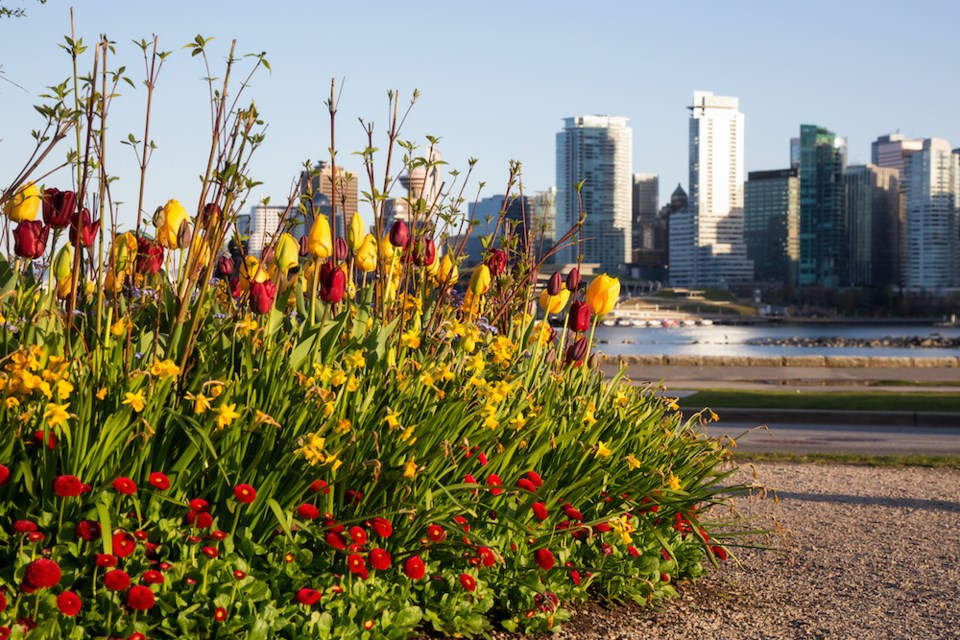Environment Canada calls for average temperatures this spring in Vancouver. However, the rest of March might feel a bit cooler than usual.
Bobby Sekhon, a meteorologist for Environment Canada, tells Vancouver Is Awesome in an interview that the region is trending toward generally warmer weather as the season progresses. In other words, the extreme cold Vancouverites experienced last month isn't likely to return.
"The seasonal model is indicating that there is a chance for near-normal temperatures in Metro Vancouver this year," he says. However, he adds that this year's spring forecast isn't looking very "conclusive."
What does this mean?
"April and May seem to be the most uncertain. The second half of March could see below-average temperatures, but I don't think we're going to be looking at any deep cold air."
Sekhon says there won't likely be any deep cold air this month, but it could get a bit cooler. However, the spring season isn't looking significantly colder overall.
La Niña and spring weather in Metro Vancouver
The Canadian Government defines La Niña as "the appearance of cooler than normal waters in the eastern and central Pacific Ocean"—A.K.A. the waters off B.C.'s coast. Sometimes also referred to as "a cold event", the climate pattern is generally considered to be the opposite of El Niño, and is usually great news for skiers and snowboarders hoping for a season full of champagne powder.
This winter, the climate pattern ushered in some cold weather in Vancouver toward the end of winter. That said, the drastically below-average temperatures in February weren't caused by La Niña. Instead, those temperatures were a result of true "arctic air" in the region.
Sekhon notes that we didn't see the effects of the La Niña winter until the later part of this winter. However, La Niña's influence weakens heading into spring. "We're not expecting a great influence from La Niña this spring."
Is there an indication of what summer be like in 2021?
Sekhon says Environment Canada does produce a summer forecast from the seasonal modelling, but he adds that it's a little too far out to draw any real conclusions from it.
"The further out the more the doubt," he notes.




